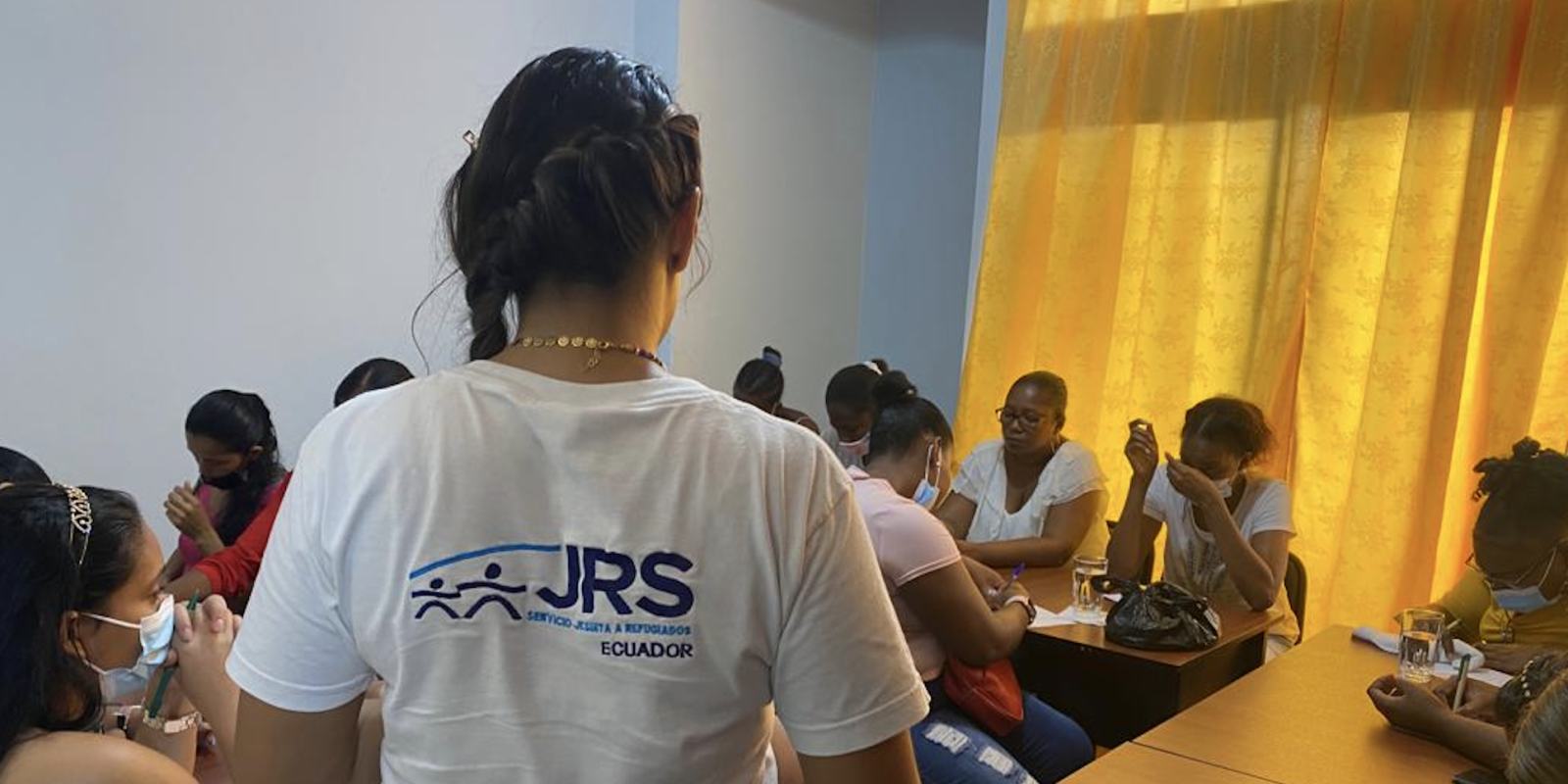Los Desplazados – The Continued Challenges faced by the Venezuelan Diaspora
09 March 2021
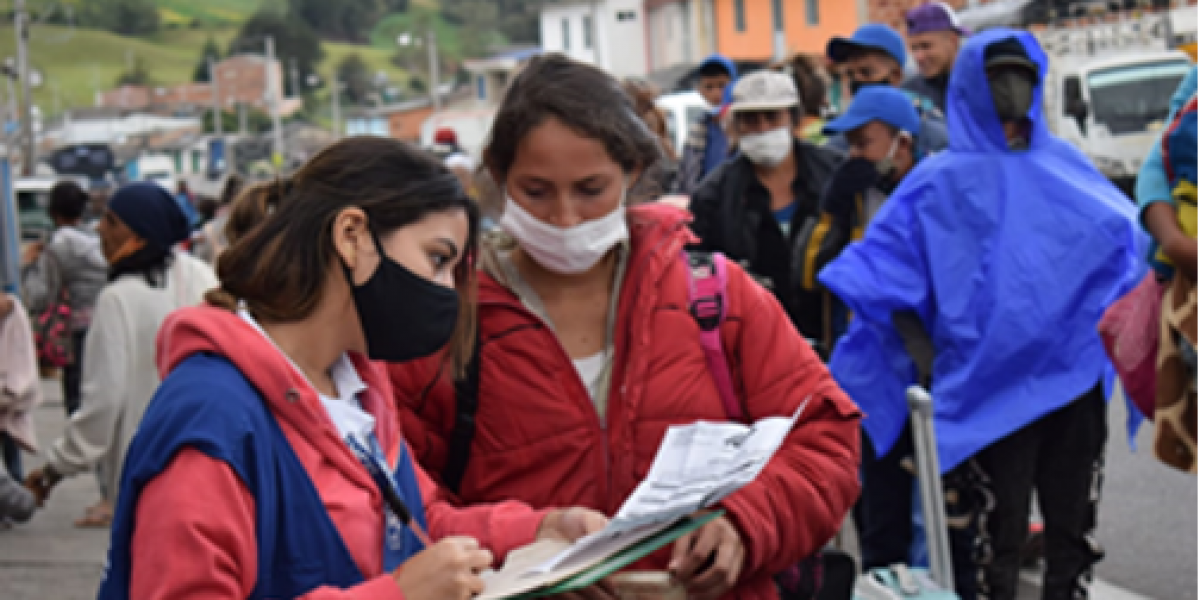
Yesterday, the Biden Administration granted Temporary Protected Status to Venezuelans who have fled the humanitarian crisis in their home country and are currently residing in the US. This status allows Venezuelans living in the US to obtain legal status to work and live without fear of deportation for a period of 18 months.
This move recognizes the continued crisis happening within our own hemisphere, and acknowledges the need to continue to support and protect displaced Venezuelans.
In 2019, JRS/USA published Los Desplazados: JRS’s Response to the Venezuelan Diaspora with stories of those who had fled from Venezuela. The stories in Los Desplazados remain as relevant today as when we captured them two years ago, however, the numbers reported have considerably grown and the circumstances the global pandemic has brought has added complexity and stress to the situation.
We’ve updated the information in Los Desplazados to reflect the continually growing issues for those who’ve been forced to flee from Venezuela.
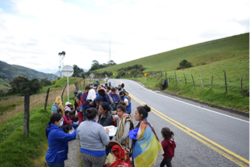
The Crisis
Venezuela continues to be in the midst of a humanitarian emergency, with an entire country facing political and economic instability and human rights violations. Hyperinflation has put even basic necessities out of reach for vulnerable citizens as Venezuelans find it harder to access food and medicine.
The deteriorating situation has driven many people to flee to neighboring countries. It is now estimated that there are more than 5.4 million Venezuelans refugees and migrants who have fled from their home country worldwide. As long as the political, institutional, and humanitarian crisis afflicting Venezuela persists, the numbers will continue to rise.
There has been an 8,000 per cent increase in the number of Venezuelans seeking refugee status worldwide since 2014
The pandemic has only increased the numbers of Venezuelans fleeing and the need to protect and support them.
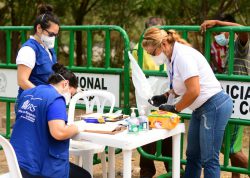
The Journey
The majority, approximately eight out of every 10, Venezuelan migrants and refugees are in neighboring countries. The number of Venezuelans entering these neighboring countries has constrained resources and threatened existing challenges and instabilities. Colombia, for example, has taken in more Venezuelans than any other country, while trying to maintain peace and manage internal displacement within its own borders. After decades of conflict, Colombia still struggles with the presence of armed groups and continued violence, resulting in persistent internal forced displacement.
Despite the influx of Venezuelans which has placed a burden on these resource-constrained hosts, there have been some efforts to ensure Venezuelans’ safety and protection in the region. Last month, Colombia announced it would give temporary protected status to the more than 1.7 million Venezuelans living within its borders for a period of 10 years. This will allow displaced Venezuelans to work legally and contribute to their new communities.
JRS Response
JRS and Jesuit partners are responding throughout Latin America. In addition to our work within Venezuela, JRS is serving Venezuelans in Colombia and Ecuador. Our work includes psychosocial support, emergency aid, shelter, local advocacy, and livelihoods and work support.
Funding from the State Department’s Population, Refugees, and Migration Bureau allows JRS to assist Venezuelan refugees and migrants in Ecuador and Colombia. JRS provides shelter, health, psychosocial support, legal assistance, and protection for displaced Venezuelans.
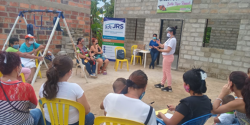
In Ecuador, we provide comprehensive legal training to help Venezuelans learn about their legal rights and about the immigration system in Ecuador. JRS also operates 14 shelter networks throughout Ecuador for refugees and asylum seekers that focus on providing access to basic needs. JRS also provides cash based incentives, humanitarian aid, access to basic need and has been a seed funder of refugee enterprises. In Colombia, JRS is helping refugees as they cross the border from Venezuela and on their journey, which is often walking through treacherous landscape with humanitarian assistance.
In both countries, one of the issues JRS continues to work on is to improve social cohesion and reduce tensions between host and refugee communities with a focus on local integration and sustainable solutions.
Our work in Colombia and Ecuador has been impacted by the pandemic, but continues, with remote support where possible and adaptations to provide needed support caused by the pandemic. JRS Ecuador has provided members of GBV support groups with phone credit so they can continue remote sessions and have on-going access to JRS staff that are trained in GBV prevention and response. In 6 territories in Ecuador, they are also distributing emergency food, hygiene, and protection materials to GBV survivors so they have adequate supplies to support themselves and their families. JRS Colombia is conducting individual legal assistance for GBV survivors via telephone/video calls to orient and help clients access support and legal resources. They are also working with GBV survivors in lockdown with their abusers to safely transport them to women’s shelters, and are carrying out a social media campaign to increase community awareness on GBV risks and protection options during Covid-19.

